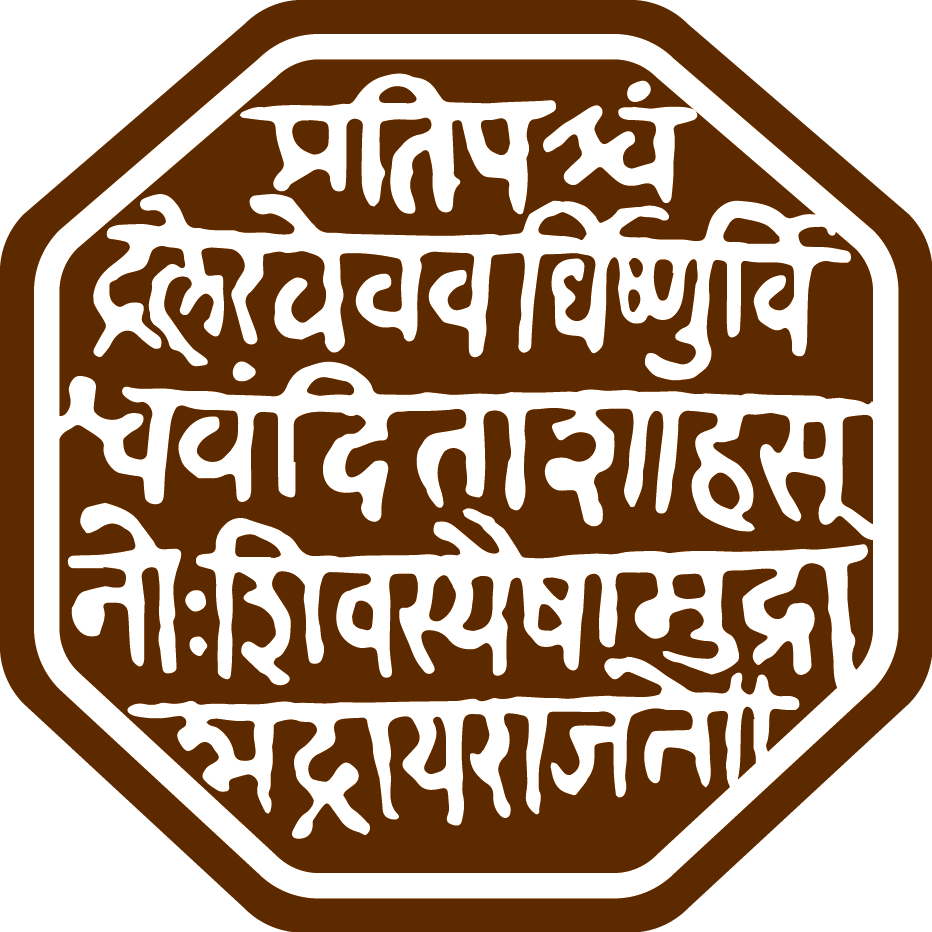

About Party
Our Standpoint
About Party
Our Standpoint
We wish to proclaim the essence of our approach once again: ‘Vowed for Spirit of Maharashtra, Pledged for Hindavi Swarajya’
Our Standpoint

We are committed since the establishment of ‘Maharashtra Navnirman Sena’, to the material and cultural evolvement of the Marathi people and the unified Maharashtra state, and will remain so in future too. We breathe for Marathi Manoos (people), Marathi culture, Marathi state, and their welfare. But, as we speak of it, our definition of who exactly is to be known as ‘Marathi Manoos’, is not at all restricted. The one who is born in this state, even if in to a non-Maharashtrian family, and assumes this state as their august land, considers Marathi language and Marathi culture as their own, and is prepared for the prosperity of the same – in short, has the throbbing for Spirit of Maharashtra – every such a one is for us the ‘Marathi Manoos´.
But, as we uphold the Spirit of Maharashtra utmost sincerely, we haven’t lost sight of the pledge for ‘Hindavi Swarajya’ (Indigenous Sovereign State) even for a moment, and never will. And our manifest inspiration behind it is that of the venerable deity of Maharashtra – Chhatrapati Shivaji Maharaj. A precise description of the ideas and notion behind the planting of Hindavi Swarajya as sown by The Great King (Maharaj) is to be found in the words of Chhatrapati Sambhaji Maharaj in his manuscript Budhbhushan as follows:
कलिकालभुजंगमावलीढं निखिलं धर्मवेक्ष्य विक्लवं य: ।
जगत: पतिरंशतोवतापो: (तीर्ण:) स शिवछत्रपतिजयत्यजेय: ॥
Kalikaal-bhujangam-aavaleedham Nikhilam Dharma-vekshya Viklavam Yah
Jagatah Patiranshat-aavateernah Sa Shivachhatrapati-Jayati-Ajeyah
The serpent of the cataclysm had clasped the righteousness (Dharma) with the intent of quashing it, when the Protector of the World descended on the earth to save her, incarnated as the King Shivaji, whose undefeatable reign may remain triumphant!
It is said that, at a given time a given nation has to perform a predefined task, which is the Destined Duty. King Shivaji recognised that the call of the time was the Hindavi Swarajya, and we believe in taking that task forward. ‘Hindavi Swarajya’ is not limited to the state for Hindus alone; even Chhatrapati Shivaji never had such a notion, neither did he regard other faiths as inferior nor did he discriminate. Indian culture is a confluence of Hindu culture and many streams joining it. There is co-existence at its core, and therefore we have no demurrals against the followers of other faiths who respect this culture and co-existence. But if anyone raises challenges this Indian culture by haughtiness or hoodlumism, we will not spare them without reparations. In summary, The Spirit of Maharashtra is our vision and Hindavi Swarajya is our mission.

Rationale for Insistence
At a time when a large area of the country was groping in the dark age of foreign invaders’ rule, the sun rose from the crests and peaks of Sahyadri ranges in the form of the king Chhatrapati Shivaji. This revolutionary infused the demoralised souls with hope and pumped strength in to the arms. He inspired the entire country for a revolt to build the Hindavi Swarajya (Hindu Sovereign State). The same Maratha regime later carried the flag of Hindavi Swarajya and hoisted it beyond the Indus River. They refurbished the ruined religious structures across the country and heartened the populace to practice their religion.
This land is not only home to bravery, but also has a grand legacy under guidance by sages, of religious reforms; hard criticism of regressive customs and conventions; of lashing at slave culture that denies people of human rights; and of providing spiritual foundation to temporal life.
The battle against the British rule – may it be in the form of revolt of 1857, or many armed rebellions in the following decades, or even the disciplined yet immoderate uprisings to make the British run for life – all have originated from this state alone.
Lokmanya Tilak, the generator of awareness about independence and nationalism in the Indian folk belongs to this land. The first social reformer of modern India, Mahatma Jyotiba Phule, was from Maharashtra. At the time when woman was seen by Indians as a mere commodity, the ‘Dnyan-Gangotri’ (Spring of Learning) Savitribai Phule – who brought women to the realisation of their being and strength – was also from Maharashtra. The Satyashodhak (Truth-seeker) movement after the Phule couple found patronage under Rahjarshi Shahu Maharaj. He unified many streams of social amendment and gave them a strong support. And the iconic rejuvenator of downtrodden and deprived poor masses, suffering in the trench of slavery of ‘untouchability’ for millennia, Dr. Babasaheb Ambedkar too came from this state. The staunch proponent of empirical approach and the exponent of Hindu nationalism Svatantryaveer (The Brave-heart of Independence) V. D. Savarkar also was the son of this soil.
Maharashtra has a heritage of great social reformers like Gopal Hari Deshmukh, Justice Ranade, Gopal Ganesh Agarkar, Rajaramshastri Bhagwat, Balshastri Jambhekar, Pandita Ramabai, Vitthal Ramji Shinde, Sant Gadage Baba, Prabodhankar Thackeray, Vinoba Bhave, Sane Guruji, Hamid Dalwai and Karmaveer Bhaurao Patil.
This is the land of leaders like Shripad Amrut Dange, S. M. Joshi, Yashwantrao Chavan, Vasantdada Patil, Balasaheb Thackeray, Sharad Pawar and the like.
This is the Maharashtra of writers, poets, and intellectuals like Bahinabai Chaudhary, Shahir Annabhau Sathe, Shahir Amar Sheikh, Acharya Atre, Sarojini Babar, Kusumagraj, Daya Pawar, Narhar Kurundkar, Iravatibai Karve, Durgabai Bhagwat, P. L. Deshpande, Vijay Tendular, Shriram Lagoo, Nilu Phule, Dadasaheb Phalke, Lata Mangeshkar, and Asha Bhosle.
Dr. Vitthalrao Vikhe-Patil, Prof. Dhananjay Gadgil, Valchand Hirachand Doshi, Shantanurao Kirloskar, J. R. D. Tata, Rahul Bajaj, B. G. Shirke and such industrialist barons and cooperation leaders have planted the saplings of trade and collaboration in this soil.
This is the land of leaders like Shripad Amrut Dange, S. M. Joshi, Yashwantrao Chavan, Vasantdada Patil, Balasaheb Thackeray, Sharad Pawar and the like.
The stream of knowledge in the form of higher education runs through this land.

Whether it is the social harmony or the spreading of national message, or even the brave soldiers from Sahyadri rushing to support the Himalayas, Maharashtra has always stayed ahead in all such ventures. The progressive Maharashtra of today is the visible outcome of such an enriching enterprise.
While each state of the country got equal opportunity for development following independence, the reason for Maharashtra staying ahead is this rich cultivation. Therefore, if we say that the first claim on the resources and opportunities in this land shall go to the worthy people following this heritage, what is the fuss about? And, we do not have any objection, and will never have, about the non-Maharashtrian communities living in Maharashtra for many generations. Our protest is against the loads entering the state from outside, without any sense of the local ethos, and who have no iota of the fabric of this culture, as well as everyone who harms its harmony and spirit. We have raised a fight against them until now, and will do the same in future.
The poet Govindagraj (Ram Ganesh Gadkari) in his poem aptly described Maharashtra in the words “(You are-) the robust country, the tough country, and country of rocks…” This is the region of valleys and basins. A part of this state comes under water-shed areas. This state does not have the boon of perennial rivers or of adequate rain showers, like some other states enjoy. This leads to a fact that the first blow of migrating lots to its cities from outside is faced directly by the water resources of their neighbouring districts.
When our mothers and sisters from Maharashtra have to tread for miles to fetch a potful of water, the deficit is not just that of water, but of political will like stated above. It cannot be denied that the growing dependency on the limited water resources is due to the lack of planning. Thus one shall feel assured that our disapproval of the migrating lots is not born of a measly mind-set. In future, some other states will have to suffer what Maharashtra is facing today. And if those states see the development of an attitude – broad like ours about our own state and our people, the Maharashtra Navnirman Sena will be in support of the same.
Looking at the rapid growth of urbanisation in Maharashtra, the government must focus attention chiefly on the planning of cities. Therefore, our emphasis is on the establishment of basic infrastructure through an all-round vision about cities on the backdrop of rampant urbanisation. In 2015, the Mumbai Municipal Corporation brought out a development plan for the city for next 20 years. A twenty year development plan for a city means the future of one generation. Therefore, each element of the plan shall have to be plotted in the light of a vision for the future life style, which demands transparency and people’s involvement. With the same thought in mind, in 2015, we presented to the dignified as well as common people, with aid from the experts, the exact nature of the development plan and errors in it. Following that, we submitted a draft of the demands of the common and distinguished people to the government.
We wish to register with responsibility that even though the policy of Maharashtra Navnirman Sena is considered to be that of hit-and-shatter, it has always been used as the last resort; otherwise we have followed the legal tracks of dialogue and symposium at larger scale as compared to other political parties.
“In order to bring about development, we will need far-reaching vision; and that development will be sustainable only if our vision is coupled with constructive and aesthetic ideas” – Shri. Raj Thackeray
We insist that our cities shall not look dreadful in the process of urbanisation and that there shall be a touch of aesthetic vision while creating any facilities. May is be the construction of a hospital, or a garden, or a library, it shall be spacious, appealing and causing least damage to the environment. If an indication emerges that certain harm to the environment is inevitable, it means that there is a flaw in the planning; and our standpoint has been and will be that the flaw be first detected and rectified.
A sense of beauty is innate to everyone, albeit with a varying quality. The societies in which their members embellished this sense with imaginative wit have shown a shift of the experience towards fineness and class; and also those societies have evolved as more sensitive and equitable. And therefore, whether in politics or development, we strongly demand this aesthetic sense,
From the same scheme of ideas, the party founded ‘Maharashtra Navnirman Academy’ in 2007; the academy presented a development plan for Maharashtra under the guidance of experts in 2014, and released it for our state. That plan can be checked even today at the website http://mnsblueprint.org . It is a rare incident in the history of independent India of a political party to bring out a comprehensive development plan. Later on we campaigned in open rallies through presentation of development works during Maharashtra Navnirman Sena’s rule in Nasik Municipal Corporation. Our outlook and assertion is that politics shall be pro-development and thoughtful. We are very glad to state that in this regard we have rendered each idea in to practice and that too without bothering for the gain or loss in elections.
Our aim and dream is to create the Maharashtra that the world will envy, but…
That is not possible unless we reach political and strategic consensus on the 5 mutually interdependent subjects of Environment, fair distribution of Natural Wealth, abundant opportunities for Employment, Education, and Women Empowerment. And our aim in the coming decade will be, as stated above, on putting forth the intense and informed ideas about those five subjects, as well as materialising them under our regime. And it is obvious that the expected changes in these 5 fields will become visible only when the obstacle for urbanisation in the form of migrating lots will be concertedly dealt with by not only Maharashtra Navnirman Sena but also by other regional parties in the country, who will take a strong position on it amidst Centre–to-States relations.
Another important and non-negotiable issue is that of ‘Unified Maharashtra’: We will never allow our Marathi state formed through one language and one culture to be broken in to pieces. We oppose the suggestion of unbalanced development as the causal factor for this partitioning of the state. The inequality in development is the result of incompetence of the local leaders. Therefore, we will take a firm position on the matter of developmental imbalance, will raise people’s movements, but will in no situation tolerate the division of the state.
Among all other, the point that cannot be underrated is that of the due respect to be given to the religion of majority in the state. Sentiments of the majority ought never be dishonoured for appeasement and favouritism of any of the communities. This state has inherently maintained religious harmony. King Chhatrapati Shivaji’s mission for a Hindavi Swarajya was contributed to by soldiers from all the castes and religions. The spirit of Maharashtra is such that Jaitunbi – born in a Muslim family – spread the message of Bhagwat Dharma throughout her life. The minorities of this state have accepted it’s prime religion and it’s legacies as their own, as well as held the state itself as their home. But the minorities migrating in from outside are conducting contrary to this. It is better that they rectify their ways in time, and respect the culture of this state and its development strategies.
And the most significant is that of the reform of Union-State affairs. The states have become more dependent of the Centre since the implementation of Goods and Service Tax system. An industrious state like Maharashtra is especially prone to beating due to this dependency. This issue is not only financial, but it has multiple dimensions.
For example, the cultural and social framework of non-Hindi speaking states is different from that of the Hindi speaking states. It has been observed for multiple times during the last few decades that the governments gaining power through sway over Hindi speaking belt fall short of grasping this framework; and this leads to creation of a situation of tension. The only solution to this is to offer more sovereignty to the states. This will require a diplomatic build-up, for which we are set ready and will remain so.
In summary, our objective is that of material and cultural progress of Maharashtra. Also, we will strive to pursue the Union governments for decentralisation, and will support the voices being raised constitutionally on that bearing.
We wish to proclaim the essence of our approach once again: ‘Vowed for Spirit of Maharashtra, Pledged for Hindavi Swarajya’
Head Office : Maharashtra Navnirman Sena
2nd Floor, Matoshree Towers, Padmabai Thakkar Marg, Matunga (West), Mumbai, Maharashtra, 400016.

Maharashtra Navnirman Sena
Head Office : 2nd Floor, Matoshree Towers, Padmabai Thakkar Marg, Matunga (West), Mumbai, Maharashtra, 400016.

